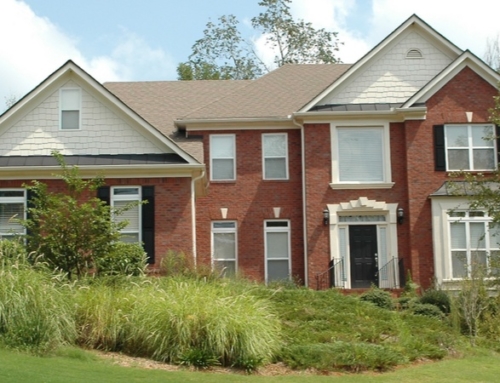With economy on tilt and political instability in several parts of the globe, home sellers are increasingly nervous about whether their properties will sell quickly, slowly, or at all.
Marsha’s home in suburban Atlanta has already been on the market for 10 months.
“We bought our home, and then a few years later, another home in the subdivision was being sold that had been totally fixed up. So we bought that, and listed our home, never thinking we were going to have a problem selling,” Marsha explains.
Two agents later, the home continues to sit as buyers come through without making an offer.
Marsha says her problem is the house backs up to the entrance of the subdivision. “But we don’t hear anything, and no one who buys this house will hear anything.” Still, she admits, the possibility of noise is scaring away potential offers.
Cathy, who also lives in suburban Atlanta, says her townhouse has been on the market for three months. But she says she has hardly had any showings, and now several other townhomes in her subdivision have come on the market.
“It’s as if people are afraid to make an offer,” she said.
When you’re selling in tough times, you’ve got to be as aggressive as possible. And that means making sure you’re doing everything right when it comes to price, condition and the marketing of your property.
Let’s start with price. Eighteen months ago, sellers could still name a “pie in the sky” price, slap it on their home and within a few days, or even a few minutes, would have fielded several offers.
But those days are gone, and the sooner sellers realize it, the faster they’ll sell their property.
Today, with more properties available for sale than buyers willing to purchase them, home buyers are in control of the residential real estate market. That means you’ll have to price your home competitively, not excessively, if you want to sell quickly.
Start by visiting open houses in your neighborhood. Take a notebook and jot down which amenities a home has, and then compare them to the amenities your home features. If you do this with 10 to 20 homes in your price range, you’ll begin to get an idea of what homes are worth.
If you want to sell quickly, you should price your home just at, or below, other homes for sale that are competitive with yours. The price will make your home stand out.
But the condition of your home had better meet or exceed the buyer’s expectation, or your home won’t sell.
Buyers are short on time, and after stretching to afford a large mortgage, they’re short on available cash. So, they’re looking for a home that’s in perfect, or near perfect, condition.
That doesn’t mean you have to do a total gut job on your property in the weeks before you list your home. It does mean you have to get rid of the dust balls under the furniture, clean out your closets, paint your interiors white or a light shade of neutral, clean your carpets, and clear off your countertops.
In addition, you’ll want to make sure your curb appeal is beautiful enough to attract a prospective buyer’s attention during a "drive-by" showing (when the buyer drives past the property trying to determine if it’s even worth a visit inside your home).
In short, someone has to be able to move into your place tomorrow without doing anything.
The final piece of the puzzle is to aggressively market your well-priced, beautiful home.
You’ll need an aggressive agent who is willing to do open houses during weeknights as well as on the weekends. But if your property has stiff competition, you and your agent will have to dream up ways to differentiate your home so it sells faster.
One way to do this is to offer a bonus to the agent who brings the buyer, say an extra $1,000 to $3,000, depending on the price of the home. You might also want to consider raising the sales commission.
While raising the commission may be the last thing you want to do, it could be your best marketing tool.
According to one real estate agent in Atlanta, if an agent sees a home listed at an above-average commission he or she will make sure to take every possible client through that property.
While agents can’t tell buyers which property to purchase, the more people that see your home, the more likely it is you’ll receive an offer.






Leave A Comment